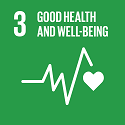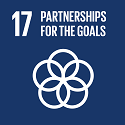Access Accelerated: Addressing Non-communicable Diseases
Challenge
Create industry initiative with CEO endorsement: 70% of the world’s deaths are attributable to non-communicable diseases (NCDs). DFI’s client wanted to design a meaningful, measurable, and scalable response to SDG 3, specifically the target to reduce premature deaths from NCDs by one-third by 2030. Any initiative needed to be in form, ambition, and practicality such that corporate CEOs involved in a focused coalition would both commit and allocate resources.
Approach
DFI helped brainstorm the initial framing and supported final private sector collaboration in preparation for launch of the Access Accelerated Initiative (AAI) in January 2017 at Davos.
- Appointed to coordinate and facilitate industry consensus
- Conceptualized and supported the design of high-impact activities to address the primary NCDs: cardiovascular diseases, cancers, diabetes and chronic lung diseases
- Fostered the participation of key donors, technical orgs, and NGOs
- Worked with senior industry leaders to achieve CEO commitments for the launch
Outcomes
- In January 2017, 20 international biopharmaceutical companies (including members of the NCD Roundtable), the World Bank, and the Union for International Cancer Control launched the Access Accelerated Initiative.
- AAI draws on coalition company resources and expertise to tackle the growing burden of non-communicable diseases in low and middle-income countries by collaborating with partners to co-create scalable and sustainable solutions to improve people’s health.
- AAI objectives include:
- Share best practices gathered from companies’ historical commitments and individual projects
- Design and set up targeted pilot projects with objective to scale
- Identify what is and is not working, improve on efforts to overcome barriers to health care delivery for NCD patients
- Mature disease-specific partnerships, including sustainable cancer care delivery models in pilot cities
- Independent evaluation framework, measure of effectiveness and ongoing reporting
Partners
Leading pharmaceutical companies, the World Bank, Union for International Cancer Control


